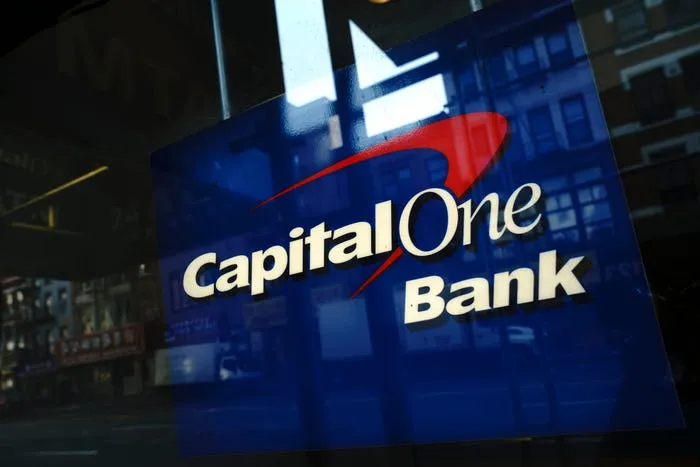Introduction
In a significant move that sends ripples through the financial industry, Capital One has successfully completed its acquisition of Discover Financial Services in a deal worth $35 billion. This merger of two of the world’s biggest credit card companies is not just a financial milestone; it signifies a strategic alignment that could reshape consumer credit and financial services. As both companies come under the Capital One umbrella, we explore the implications of this merger, what it means for the future of consumer credit, and why Capital One’s stock may be viewed as a bargain post-acquisition.
Understanding the Merger
Capital One, founded in 1994, quickly rose to prominence as an innovative player in the credit card market. Known for its technology-driven approach and customer-friendly products, the company has captured a significant share of the consumer lending market. Discover, which has been providing credit card services since 1986, is also known for its cash-back rewards and customer service.
The decision to merge these two giants comes amid increasing competition in the financial services sector, especially from fintech companies that have managed to attract younger consumers with their technology-first approaches. By merging, Capital One aims to leverage Discover’s loyal customer base and product offerings while enhancing its technological capabilities.
The Financials Behind the Deal
The acquisition was valued at $35 billion, which includes a mix of cash and stock options provided to Discover shareholders. Analysts have speculated that this valuation reflects not only the current market standing of Discover but also its potential for future growth under Capital One’s leadership.
According to reports, the merger is expected to generate annual cost savings of approximately $1.5 billion by merging operational functions and streamlining administrative costs. These savings are crucial for enhancing profitability and could make the combined company more resilient against market fluctuations.
The Benefits for Consumers
Consumers stand to gain significantly from this merger. With the combined resources of both companies, Capital One aims to enhance its product offerings. Here are some potential benefits:
- Wider Range of Products: Customers will likely see an expanded array of credit products, including better rewards programs and innovative credit solutions.
- Enhanced Customer Experience: Integrating Discover’s acclaimed customer service with Capital One’s technology can create a streamlined and efficient customer experience.
- Lower Fees: As the company seeks to remain competitive in a crowded market, customers may benefit from reduced fees and better interest rates.
The Investor Perspective
Post-acquisition, many investors are raising eyebrows over Capital One’s stock performance. Following the announcement of the merger, Capital One’s stock experienced slight volatility, sparking debate about its current valuation. Many financial analysts are deeming Capital One’s stock a bargain at present.
Historically, merger announcements have led to initial stock dips; however, savvy investors are viewing this as an opportunity. The combined operational efficiencies and enhanced cash flow potential arising from the merger could lead to significant long-term growth.
Moreover, there is potential for increased shareholder value as synergies are unlocked and the merged company’s market presence strengthens. Analysts predict that as the merger’s benefits are fully realized over the coming years, capital appreciation in stock value could be substantial.
The Challenges Ahead
As with any merger, challenges are inevitable. Capital One will need to navigate the complexities of integrating Discover’s organizational culture and legacy systems into its framework. Merging large companies brings the risk of employee turnover, and managing talent retention will be crucial to maintaining service levels.
Additionally, regulatory scrutiny is a concern. The financial services industry is highly regulated, and large mergers often attract the attention of government entities that assess whether such moves are in the public interest. Capital One will need to work closely with regulators to ensure that the merger clears necessary antitrust laws.
Changing Landscape of Credit Cards
This merger signals a turning point in the overall landscape of credit services. As consumer preferences shift toward digital and mobile banking, companies must innovate to maintain relevance. Capital One’s acquisition of Discover allows it to compete more effectively against up-and-coming fintech companies.
Additionally, the merger aligns with trends towards consolidation in the financial services sector. As consumer demands evolve, larger entities will be better positioned to adapt through resources and technology investments.
Expert Opinions on the Future
Financial experts are optimistic about the future,. “This merger not only strengthens Capital One’s market position but also enhances the overall consumer experience in the credit card industry. The collaboration allows for a sharing of innovative practices that may lead to groundbreaking advancements,” stated an analyst from a leading financial advisory firm.
Furthermore, as consumer behavior continues to shift, companies that prioritize digital offerings and customer service will dominate. The merger positions Capital One and Discover favorably for the years to come, allowing for greater adaptability in a fast-moving market.
Conclusion
The merging of Capital One and Discover is more than just a historic financial deal; it signifies a transformative shift in how credit card companies will operate and compete in the future. As the two behemoths come together, the combined entity is set to redefine customer experiences, streamline operations, and potentially provide a more streamlined regulatory landscape.
For consumers, this merger could mean enhanced offerings, while investors might find Capital One’s current stock prices to be an attractive entry point. As the financial world keeps a keen eye on the integration process and its outcomes, one thing is clear: the merger of Capital One and Discover marks the dawn of a new chapter in the saga of consumer credit.







